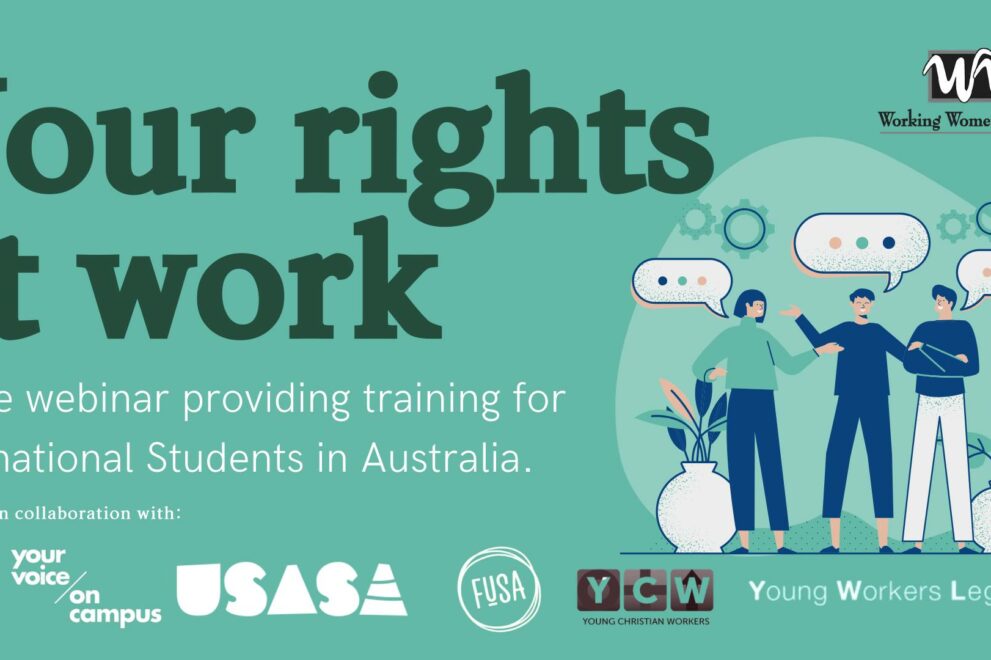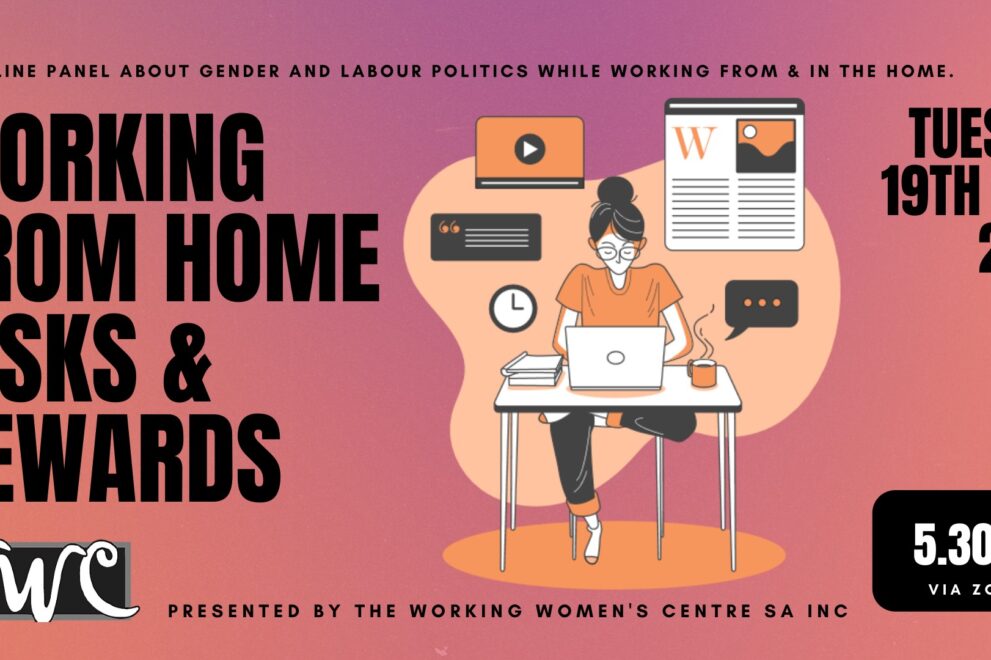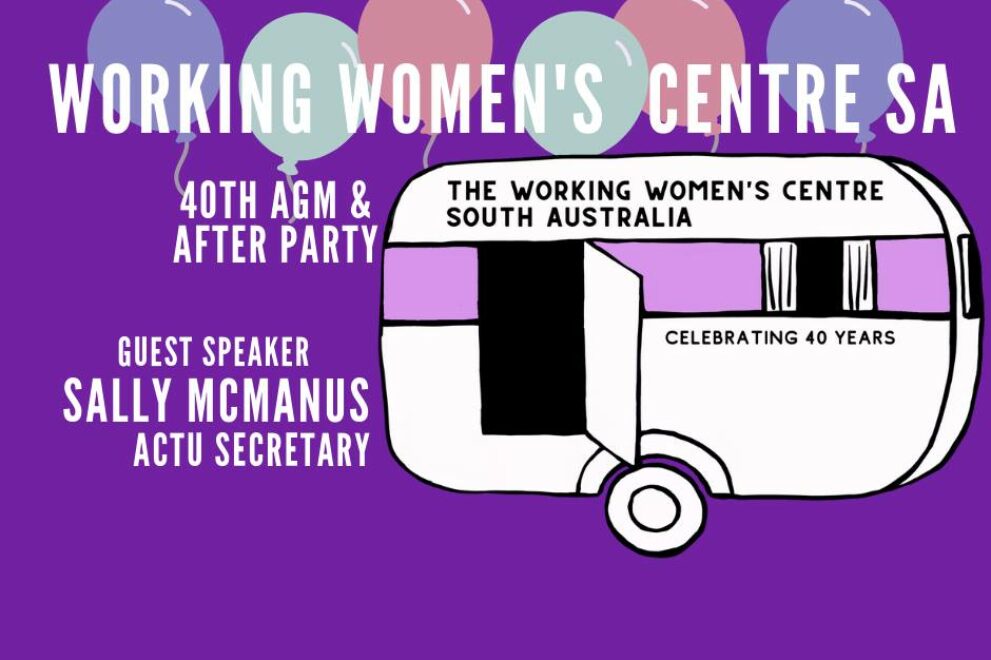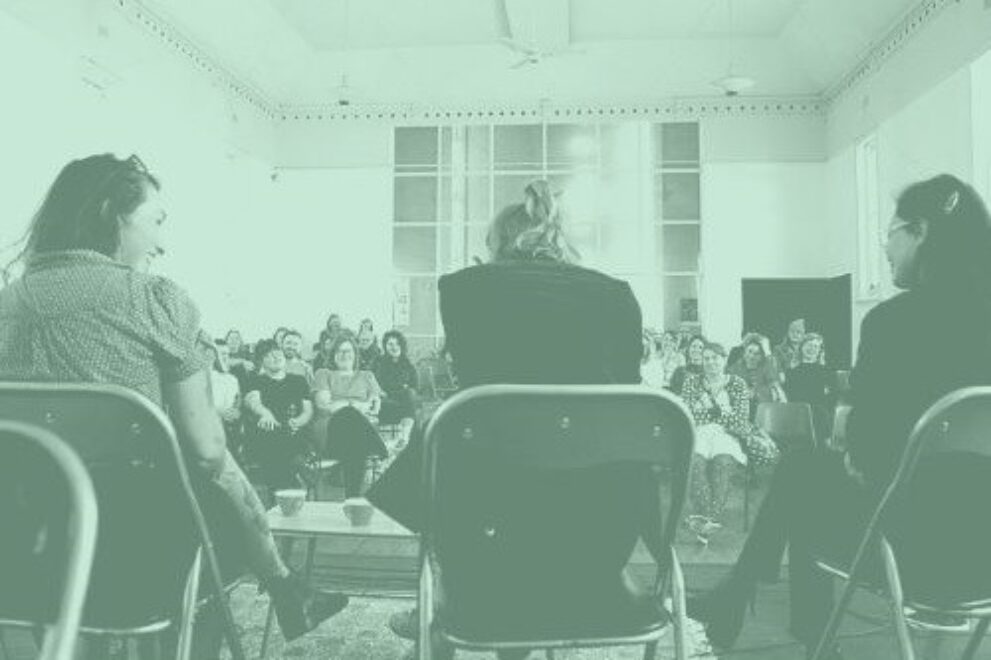Your cart is empty.


Your cart is empty.
We’re proud to work with the Australian Services Union (ASU) and The Women Lawyers’ Association of SA to co-present a Continuing Professional Development (CPD) session on sexual harassment prevention in the legal profession.
In 2021 the Equal Opportunity Commission conducted a review of harassment in the South Australian legal profession and found high levels of sexual harassment. The report found that 33% of legal practitioners had been sexually harassed at work, with 83% harassed on multiple occasions.
That report recommended changes to the CPD scheme and now requires all practitioners to undertake a mandatory CPD unit this compliance year, covering bullying and harassment.
Email union@asu-sant.asn.au to RSVP for subsidised drinks and nibbles.
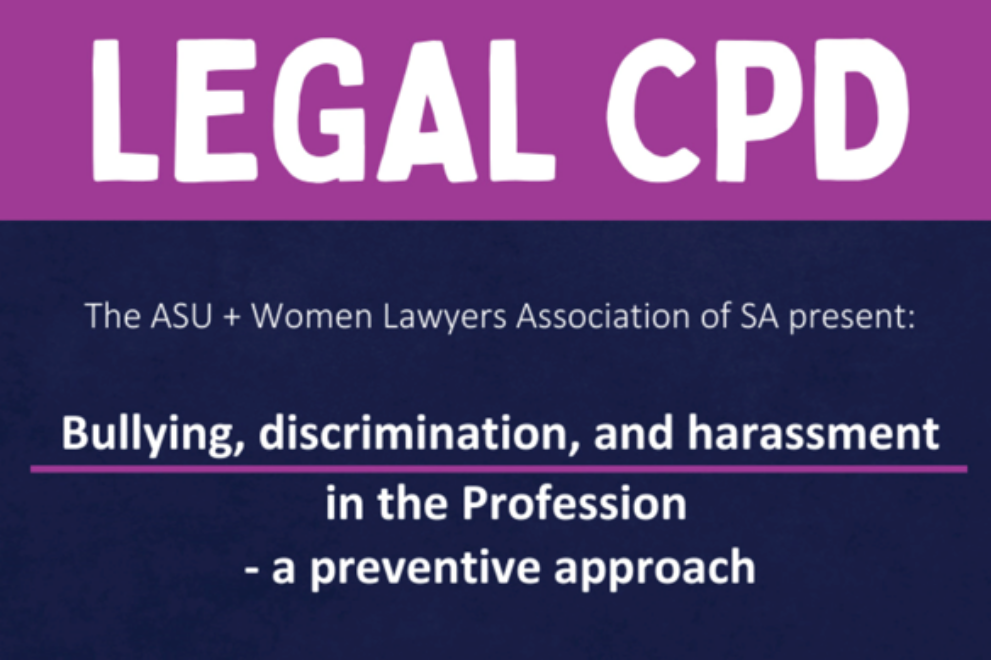
The Working Women’s Centre SA invites Professor Rae Cooper and Associate Professor Elizabeth Hill, two pre-eminent experts in the world of women, family, and work, to discuss how public policy and legislation effects women, work, and families.
We will discuss the big-ticket public policies that rule the first 12 years of parenting:
We are going to examine these public policies and laws and ask the following questions:
We acknowledge that this event will be streamed on Kaurna land and we pay our respect to the traditional custodians of the land, past and present. Sovereignty was never ceded.
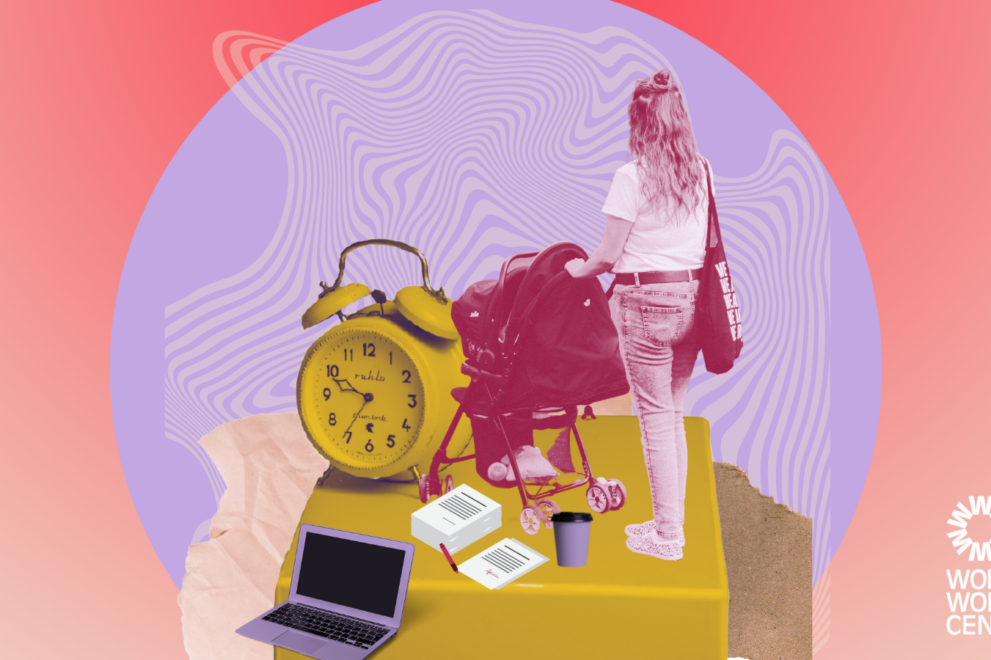
Can you really report instances of sexual harassment in your workplace when you risk losing your job? How does job security help to protect workers from sexual harassment and gendered violence?
Come along to our upcoming panel event about The Protective Power of Job Security. Our guest speakers will discuss how violence against women is linked to casualisation and how we can prevent violence by increasing access to job security.
Senator Sarah Hanson-Young: Senator for South Australia.
Tanya Hosch: 2021 South Australian of the Year, and the Executive General Manager of Inclusion and Social Policy at the AFL.
Gemma Beale: Writer and a PhD Candidate at Flinders University, with a focus on insecure work and a passion for economic justice.
The panel discussion will go until 7.30, after which attendees are invited to stick around to chat. Drinks will be available for purchase.
This event is possible due to a grant from the Government of South Australia, Department of Human Services, as part of the COVID-19 National Partnership – Domestic Violence Funding.
We acknowledge that this event will be held on Kaurna land and we pay our respect to the traditional custodians of the land, past and present. Sovereignty was never ceded.
CONTENT NOTE: this event will involve a discussion on sexual harassment, domestic and family violence and sexual assault.
The Respect@Work Report (2020) outlines that 1 in 3 Australians have experienced sexual harassment at work, ranging from serious offences like sexual assault and rape, to inappropriate comments and sexist slurs.
At the Working Women’s Centre, our staff regularly provide advice and support for workers who have experienced workplace sexual harassment. Many of these workers are working in insecure jobs, such as casual or fixed-term contracts.
Our staff have observed that workers are often unable to resist or report sexual harassment due to the risk of losing their job. Gender inequality is proven to be the most significant driver of violence against women and workplace sexual harassment. We have the opportunity to prevent violence by collectively working to increase access to job security.
The Working Women’s Centre is proud to hold a panel event about job insecurity and its connection with gendered violence. In this event, we well hear from three fantastic speakers, each sharing their personal experience and expertise on the topic. The event is also the launch of a new project to improve job security as a protective factor against violence.
We hope to see you there!
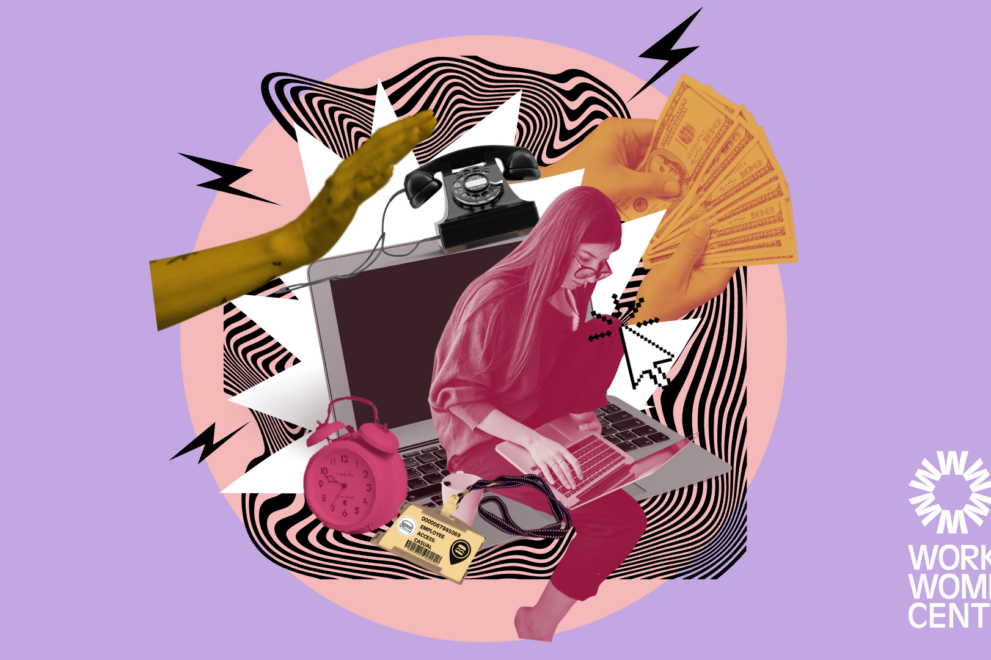
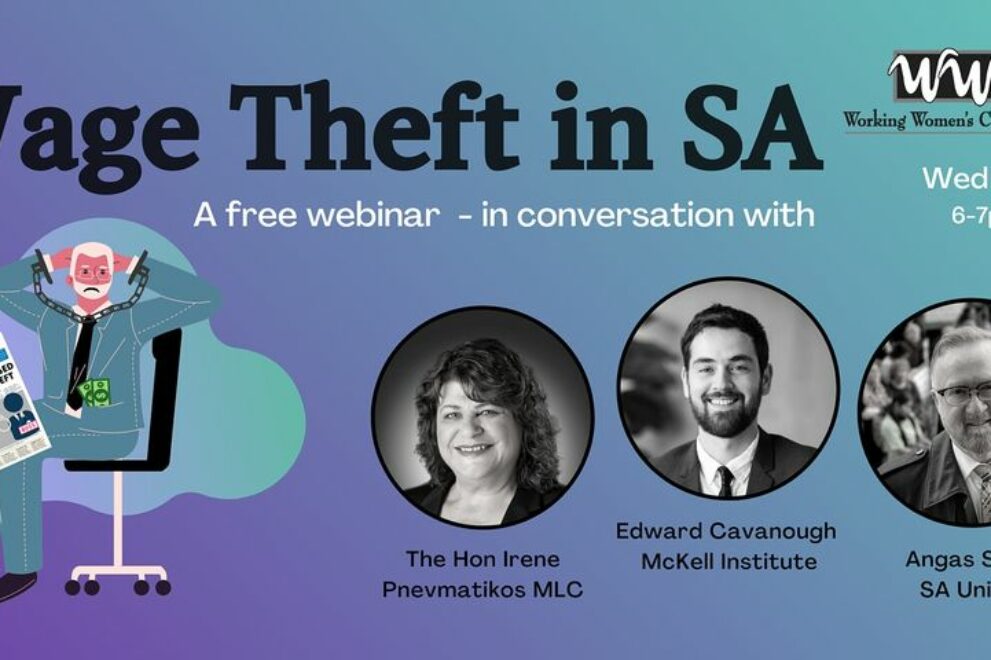
We recognise that many international students are working casually, often well below the minimum wage and can be at greater risk of exploitation by their employer.
